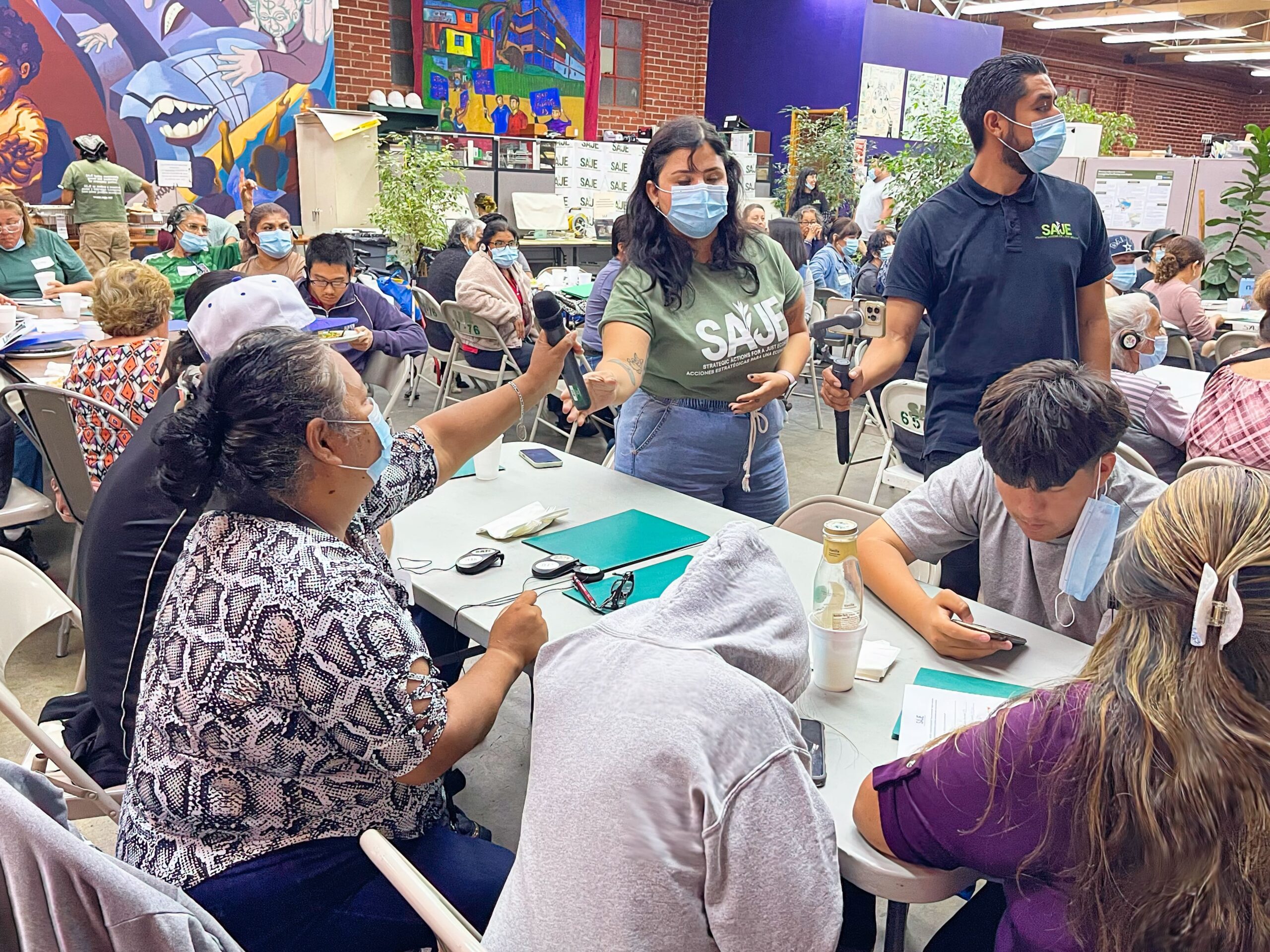SAJE Staff
October 8, 2025
Across the globe, climate change is causing wildfires, flooding, tornadoes, hurricanes, and extreme heat to be more severe and destructive. How do we build resilience in the face of these disasters, as well as their aftermaths? This was the central question of SAJE’s October 2 escuelita on disaster capitalism, which brought 93 members of the public together in person and on Zoom to talk about the concept and its origins, some recent examples, and what protecting vulnerable communities might look like.
The term “disaster capitalism” was coined by writer Naomi Klein in her 2007 book Shock Doctrine: The Rise of Disaster Capitalism. She recounts how, in 2004, a massive earthquake and tsunami devastated the coastlines of Indonesia, Sri Lanka, Thailand, and India and killed hundreds of thousands and necessitated mass displacement. In the aftermath, evacuated homes and land were seized by developers to build hotels and for other for-profit ventures.
This example is not unique; over the past two decades, corporations have used large-scale disasters to promote the deregulation and privatization of land, housing, and public goods. One closer-to-home example, which SAJE has written about in our recent report Compounding Disaster, is the Eaton Fire in Altadena, which drove widespread rent gouging by private landlords as well as a marked increase in the sale of lots to private investors.
SAJE’s escuelita emphasized climate justice isn’t just about preventing environmental devastation—it’s about preventing socio-economic devastation, too, because the impacts of climate change drive existing inequity. Working-class people, people of color, Indigenous people, women, and people with disabilities are more vulnerable to disasters because they have fewer resources to push back against the private actors who swoop in to buy up homes or land for cut-rate prices or to privatize relief efforts. Escuelita attendees discussed what resilience might look like in the face of future disasters, and how we might guard against predatory actors who seek to profit from destabilization. They also discussed the need to be prepared for what happens after these disasters strike, too, so that we can ensure our communities remain strong and intact.
SAJE has campaigns that do just that. We are making sure that extreme heat doesn’t kill people by passing laws that regulate indoor temperatures for rental housing. We have a campaign to make sure that efforts to make rental housing greener by getting rid of gas appliances and making energy efficient upgrades don’t fall on tenants to pay for. And, we are thinking about ways to put more housing into community hands to shield it from corporate buyers.
If you are interested in getting involved with our climate justice work, reach out to Alejandro Campillo at acampillo@saje.net.

